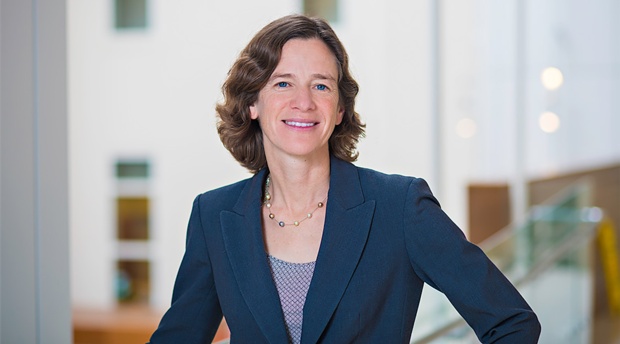Focus on Scholarship: Professor Amanda Frost Receives 2019 ACLS Fellowship
April 4, 201
American University Washington College of Law Professor Amanda Frost has been selected as a recipient of the 2019 American Council of Learned Societies (ACLS) Fellowship.

The ACLS Fellowship Program awards fellowships to individual scholars working in the humanities and related social sciences. Frost – who writes and teaches in the fields of constitutional law, immigration and citizenship law, federal courts and jurisdiction, and judicial ethics – is among 81 ACLS Fellows chosen from over 1,100 applicants.
During the fellowship, Frost will be working on her forthcoming book, Unmaking Americans: A History of Citizenship Stripping in the United States, which is scheduled for publication by Beacon Press in 2020.
“I am delighted to have received the ACLS Fellowship, which provides essential financial support as I devote myself full-time to researching and writing the book,” Frost said. “I believe the award is recognition of the important and timely nature of my topic, and I will strive to produce a book worthy of ACLS’s support for the project.”
In Unmaking Americans, Frost will describe the government’s long history of stripping citizenship through the stories of the individuals who lost their citizenship. The book begins by recounting the battle to restore citizenship to former slaves, culminating in a debate in Congress about whether the first black senator, Hiram Revels, was a U.S. citizen eligible to be seated in Congress. The book will go on to describe the life of Wong Kim Ark, the named plaintiff in the Supreme Court case establishing birthright citizenship.
“The government had argued that Wong and other native-born Americans of Chinese ancestry did not qualify for birthright citizenship, and even after he won his case his citizenship and that of his children was regularly questioned by federal immigration officials,” Frost said. “Subsequent chapters describe the experience of women who lost their citizenship as a result of marrying noncitizens, and their fight to get their citizenship back, as well as Japanese Americans encouraged to renounce their citizenship during World War II, and Mexican Americans deported as part of the government’s initiative to deport migrant laborers.”
Unmaking Americans will conclude with an analysis of contemporary debates over birthright citizenship for the children of undocumented immigrants and the Trump administration’s denaturalization campaigns, and will tie contested views of citizenship to questions about American identity, belonging, and immigration policy.
“(Fellowship) awardees, who hail from more than 60 colleges and universities, were selected for their potential to make an original and significant contribution to knowledge,” Matthew Goldfeder, director of fellowship programs at ACLS, said in a statement. “They are working at diverse types of institutions, on research projects that span antiquity to the present, in contexts around the world; the array of disciplines and methodologies represented demonstrates the vitality and the incredible breadth of humanistic scholarship today.”